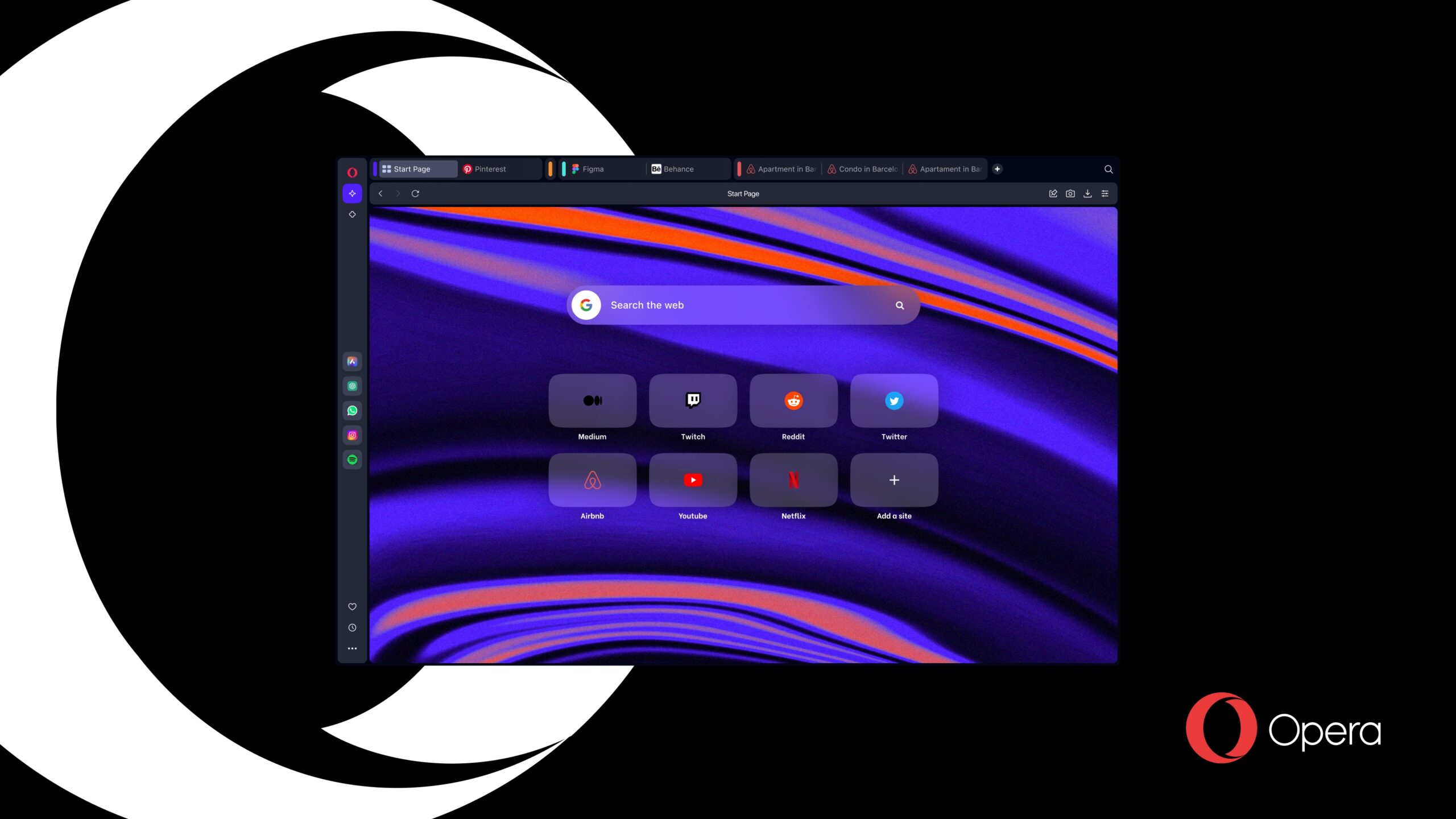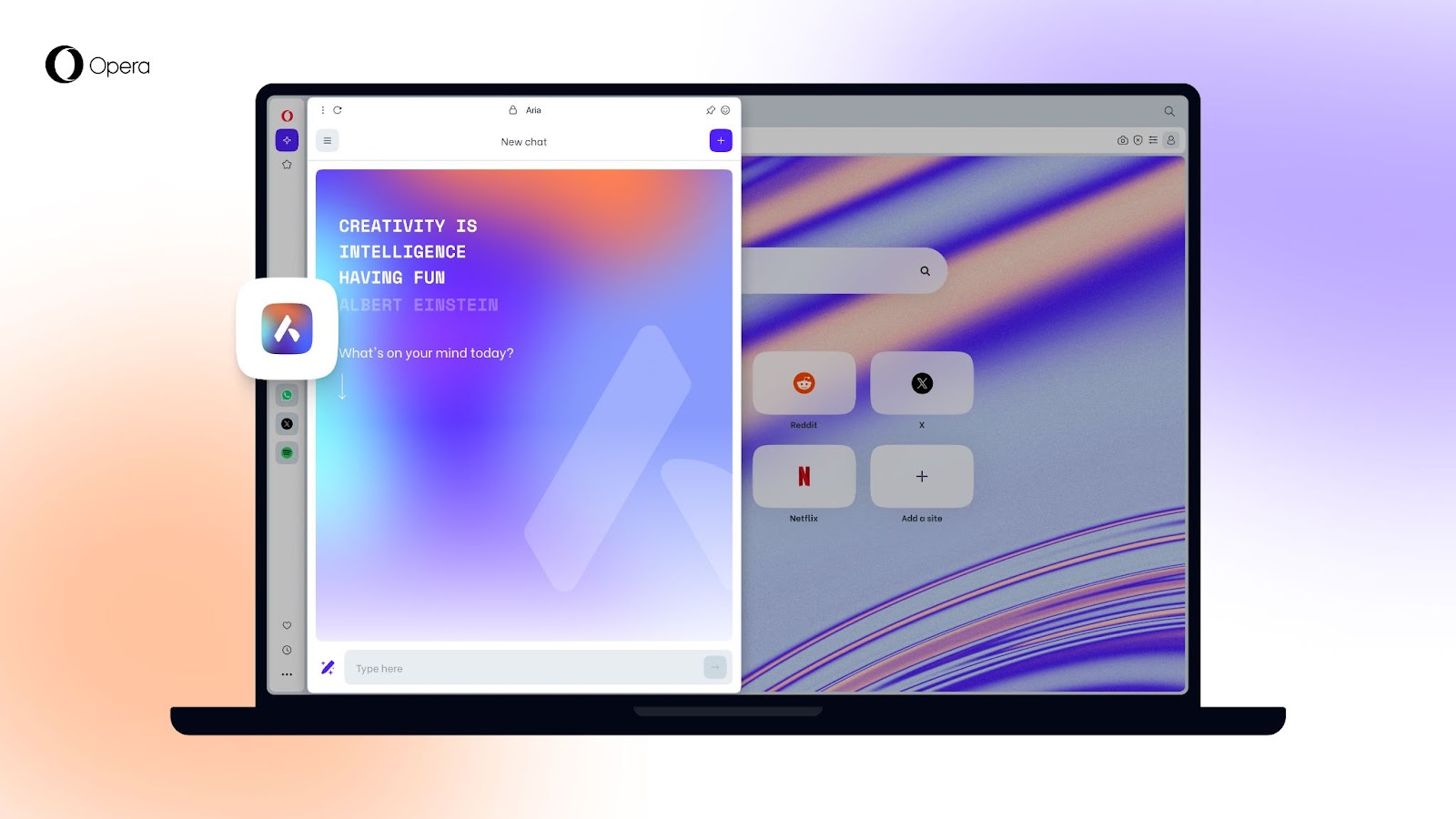Gandalf_The_Grey
Level 76
Thread author
Verified
Honorary Member
Top Poster
Content Creator
Well-known
- Apr 24, 2016
- 6,600
Today, we unveil Opera One – a completely redesigned browser that is planned to replace our flagship browser for Windows, MacOS, and Linux later this year. Based on Modular Design, Opera One delivers a liquid navigation experience and transforms the way you interact with your browser. We’ve furthermore integrated a multithreaded compositor that brings UI to life like never before, powering innovative new features like Tab Islands. This exciting upgrade comes just weeks after we integrated our first generative AI features, including AI Prompts and sidebar access to ChatGPT and ChatSonic.
Opera has a long history of reinventing itself and its products to adapt to the evolving nature of the web. Opera One is a big step in that direction, particularly with the adoption of a new Modular Design philosophy. While we’re starting with an early access developer build now, the browser will adapt to your needs, bringing only key features and relevant modules to the foreground when and where you need them. Automatically adjusted based on context, Modular Design will provide you with a more liquid and effortless browsing experience. Opera One will also harness powerful new AI-based features, which we’ll be adding in the near future.
The liquid navigation and Modular Design are made possible by our new Multithreaded Compositor, which Opera is the first among the major Chromium-based browsers to introduce. What is it exactly, and why does it make your browsing experience better? The compositor thread delivers a faster and smoother user interface layer, which enables high performance graphics operations without interruption from other processes. Together with Modular Design, this new architecture allows us to implement exciting new features that differentiate ours from other Chromium-based browsers – among them, Tab Islands.
A survey of you, our users, told us how overwhelmed you are by the messiness of so many open tabs, and that you wish web browsers would do more to help manage them. With so many open, we know how difficult it can be to jump between tasks and stay productive. That’s why we thought up a groundbreaking solution for you: Tab Islands.
Opera One’s new Tab Islands feature delivers a smooth and intuitive experience that can help you stay on task without forcing you to change your habits. Are you looking for the best place for lunch? The tabs with the menus, locations, and restaurant details will open in a dedicated tab island. Do you have a bunch of Google Docs you use for work? They, too, can get a tab island of their own. As you browse and more tab islands are created, you can easily distinguish the topics you were focusing on and switch between them. In the new, reinvented version of Opera, tab islands are the first manifestation of its Modular Design: they are clearly distinguishable in the browser UX, marked by separate colors and clear island borders.
Tab islands are automatically created to keep tabs together within the same browsing context. Open websites can also be gathered into a tab island by pressing the CTRL/Command button, clicking on the ones you want to group, and then right clicking to create a tab island. They can also be moved by dragging and dropping between islands, and you can add to an existing tab island by drag and drop or by pressing the small plus button on the side of the island.
Our updates in early 2023 – including the addition of generative AI features – have paved the way for this new, redesigned browser. But of course we’re far from done! We plan to ship an AI engine of our own in the coming months, we’ll continue to make the browser UI ever more intuitive and functional through advances in Modular Design.
Reimagine your life online by downloading Opera One today.

Opera unveils Opera One, an entirely redesigned browser
Opera unveils Opera One today, a completely redesigned browser that is planned to replace the flagship platform for Windows, MacOS, and Linux later this year.
 blogs.opera.com
blogs.opera.com







